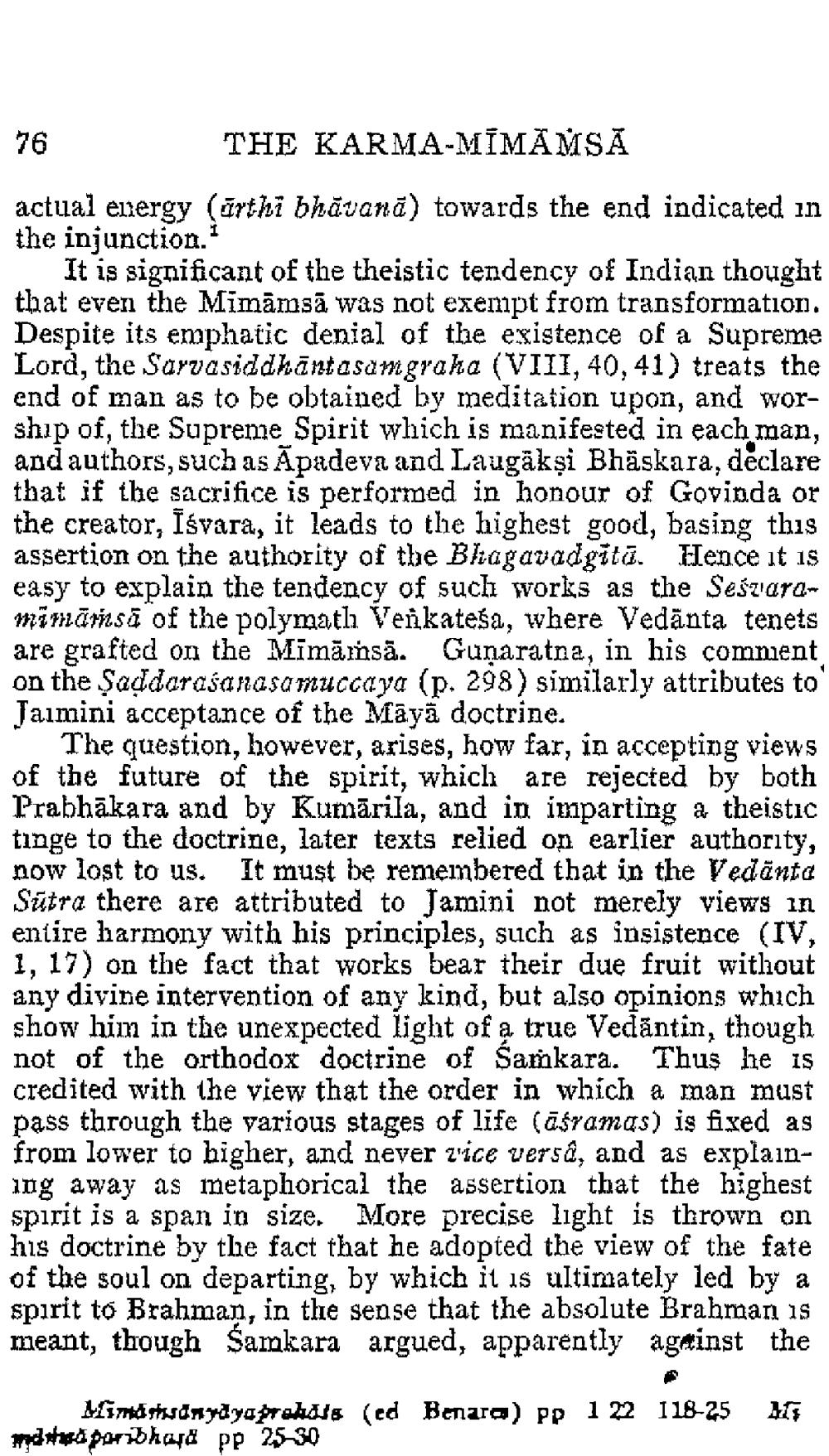________________
76
THE KARMA-MĪMĀMSA
actual energy (ārthi bhāvanā) towards the end indicated in the injunction."
It is significant of the theistic tendency of Indian thought that even the Mīmāmsā was not exempt from transformation. Despite its emphatic denial of the existence of a Supreme Lord, the Sarvasiddhāntasamgraha (VIII, 40, 41) treats the end of man as to be obtained by meditation upon, and worship of, the Supreme Spirit which is manifested in each man, and authors, such as Apadeva and Laugäkşi Bhäskara, declare that if the sacrifice is performed in honour of Govinda or the creator, īśvara, it leads to the highest good, basing this assertion on the authority of the Bhagavadgitū. Hence it is easy to explain the tendency of such works as the Sestaraminārsā of the polymath Venkatesa, where Vedānta tenets are grafted on the Mimāṁsā. Gunaratna, in his comment on the Saddarasanasamuccaya (p. 298) similarly attributes to Jaimini acceptance of the Māyā doctrine.
The question, however, arises, how far, in accepting views of the future of the spirit, which are rejected by both Prabhākara and by Kumārila, and in imparting a theistic tinge to the doctrine, later texts relied op earlier authority, now lost to us. It must be remembered that in the Vedanta Sūtra there are attributed to Jamini not merely views in entire harmony with his principles, such as insistence (IV, 1, 17) on the fact that works bear their due fruit without any divine intervention of any kind, but also opinions which show him in the unexpected light of a true Vedāntin, though not of the orthodox doctrine of Samkara. Thuş he is credited with the view that the order in which a man must pass through the yarious stages of life (āśramas) is fixed as from lower to higher, and never zice versa, and as explaining away as metaphorical the assertion that the highest spirit is a span in size. More precise light is thrown on his doctrine by the fact that he adopted the view of the fate of the soul on departing, by which it is ultimately led by a spirit to Brahman, in the sense that the absolute Brahman is meant, though Sankara argued, apparently against the
DTI
Mimosadnodyapraksts (cd Benza) pp 122 118-25 dan perikard pp 25-30




